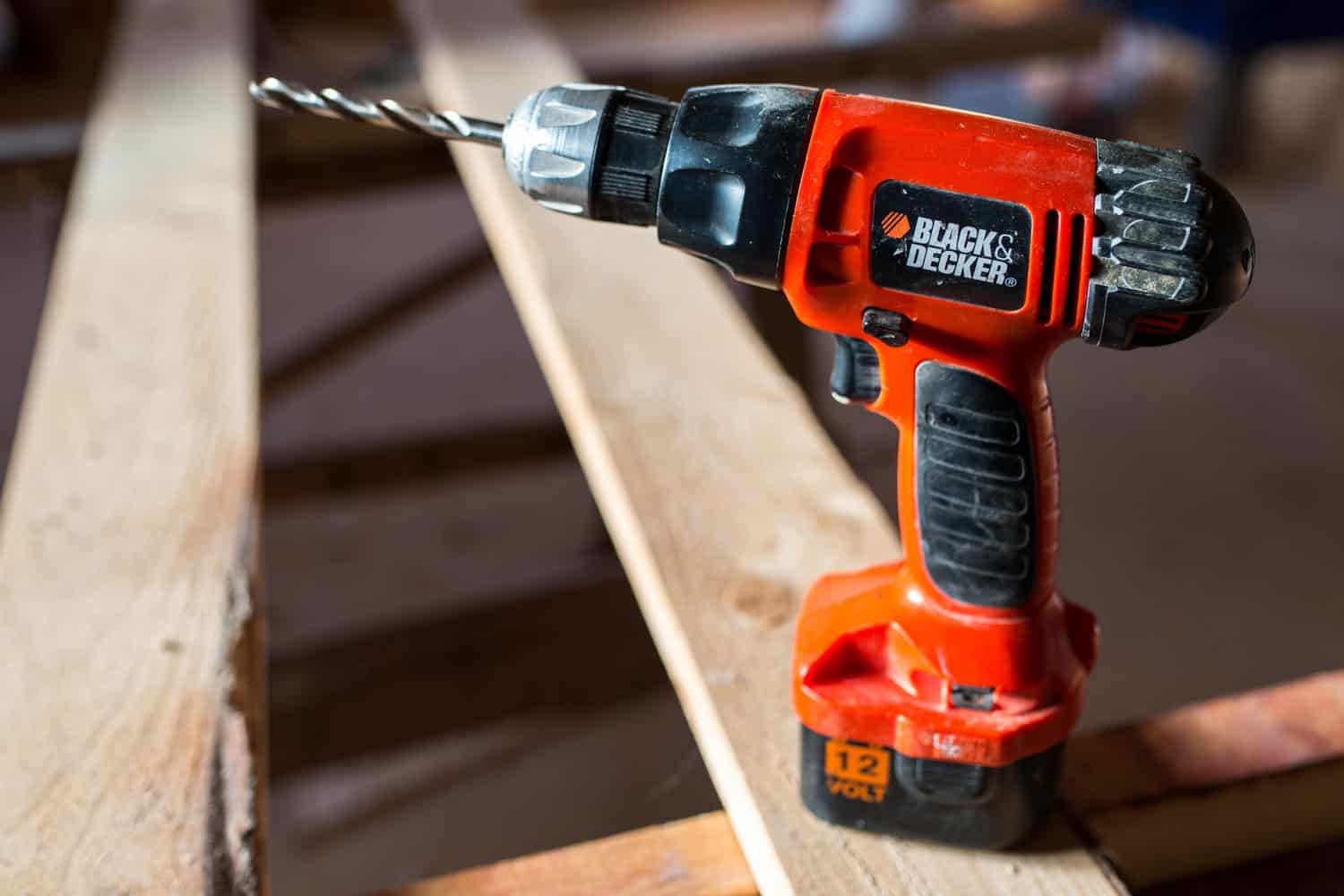As a power tool enthusiast, you've probably wondered if Black & Decker batteries are interchangeable with other brands.
The compatibility between batteries and tools from different manufacturers can be a significant concern, especially if you want to maximize the usage of the batteries you already own.

Today, we'll answer this burning question in this article.
Can Black & Decker Batteries Fit Other Brand Tools Directly?
Black & Decker batteries are designed to fit specific Black and Decker tools and are not generally compatible with other brands.
In some cases, Black & Decker 20v batteries may fit other brands, such as Craftsman and Porter-Cable.
However, variations in size, style, connector type, voltage, and amp-hour ratings can sometimes prevent brand compatibility.
But with a bit of modification, such as cutting about an inch of the plastic tab on both the battery and the tool, it's possible to use the Black & Decker with other power tool brands, as long as the volts are the same.
It's important to mention that modifications like these are generally not recommended by manufacturers and may void warranties or pose safety risks.
Despite some similarities in appearance, they have different connector types and battery specifications, preventing direct compatibility.
DIY Universal Adapter
A DIY universal adapter is a viable route for those willing to venture beyond simple physical modifications.
Embrace Making demonstrates this process by creating an adapter by measuring the battery receptacles, creating a 3D model, and 3D printing the adapter.
However, these modifications are not simple and may require a certain level of expertise and—again, could void warranties.
See the video below to learn more about how you can make a universal tool battery system.
What Are the Risks of Using Black & Decker?
Before attempting to use your Black & Decker battery with a non-Black & Decker tool, it's important to note that there are some risks involved.
Let's explore a few of those potential issues.
Battery or Power tool Damage
Firstly, you could damage your battery or tool due to incompatibility. Different tool brands have distinct battery and device features to ensure proper functioning.
Forcing Black & Decker batteries into non-compatible tools can decrease the performance and cause wear and tear over time.
Safety Concerns
You may also compromise the safety of your tool and yourself. Combining different voltage batteries and tools for different voltages can lead to short circuits or fire hazards.
So, it's essential to ensure that the battery's voltage matches your tool to avoid any accidents.
Warranty Voidance
Lastly, using a Black & Decker battery with other brands might void the tool's or the battery's warranty.
Manufacturers often add terms to their warranties that exclude damages caused by using accessories from different brands. So, it's essential to check before making any changes.
You might also like: Why Does My Black & Decker Charger Say ‘Flo’?
Have Any Third-Party Manufacturers Created Adapters or Converters?
Each brand typically has its battery design, and purchasing different batteries for each tool can be disappointing.
With this, third-party manufacturers have stepped in to address the compatibility issues between Black & Decker batteries and other tool brands.
Power Tool Adapters is one notable manufacturer offering a selection of adapters, facilitating the use of Black & Decker batteries with popular tool brands like Milwaukee, Dewalt, and Ryobi.
They present a range of adapters that can be a handy solution for those looking to interchange batteries across different tool brands.
Additionally, an adapter on Amazon enables the conversion of 20V to 18V for Black & Decker tools.
If you need to convert 20V to 18V for Black & Decker tools, this adapter might be worth your time.
Are Black & Decker and Milwaukee Batteries Interchangeable?
Unfortunately, Black & Decker and Milwaukee batteries are not directly interchangeable.
Each brand has its unique design that fits precisely with their respective tools. This design difference ensures that each battery works optimally with its designated tool, providing your power tools' best performance and longevity.
However, as we've mentioned, you can use a cross-brand battery adapter to connect a battery from one brand to a tool from the other.
Though this solution can work, weighing the risks associated with using an adapter is essential.
As we've covered in the previous sections, it may impact the tool's efficiency and void warranties from the manufacturers.
Related reading: Can You Use Milwaukee Batteries With Other Brand Tools?
Can I Interchange 20V and 40V Batteries?
Generally, Black & Decker designs its tools and batteries to be compatible within the same voltage range.
This means you can typically use a 20V Black & Decker battery with a tool designed for 20V, but not 40V batteries.
You should only use batteries with the same voltage as the tool you intend to power. Attempting to use a 20V battery with a 40V tool, or vice versa, is not recommended.
Doing so can lead to performance issues and potential damage to the tool or battery and may even pose safety risks.
Conclusion: To Interchange or Not?
For those passionate about power tools, the question of whether Black & Decker batteries can work with other brands is worth exploring.
However, while the option to interchange batteries exists, it's essential to consider the potential consequences and safety precautions.
As we've covered, using Black & Decker batteries with non-compatible tools carries risks, including potential damage to your battery or tool, safety concerns due to voltage mismatches, and warranty avoidance.
It's crucial to weigh these factors before attempting cross-brand compatibility.
Ultimately, the decision to venture into cross-brand compatibility should be made with careful consideration of your tools' performance, longevity, and warranty protection.

